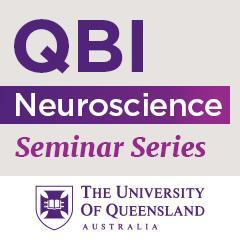Prefrontal Cortex-Derived Vesicles as Molecular Messengers in Substance Use Disorders

Speaker: Associate Professor Rodrigo Grassi-Oliveira
Department of Clinical Medicine
Translational Neuropsychiatry Unit
Aarhus University
Denmark
Title: Prefrontal Cortex-Derived Vesicles as Molecular Messengers in Substance Use Disorders
Abstract: Substance use disorders (SUD) are increasingly recognized as complex brain disorders involving neuroadaptive and neuropathological processes such as inflammation, oxidative stress, and impaired neuroplasticity. Emerging evidence suggests that brain-derived extracellular vesicles (BDEVs) may act as molecular conveyors of these pathological signals, yet their role in addiction-related mechanisms remains poorly defined. In this lecture, I will present data from rodent and human studies demonstrating how chronic opioid exposure alters the molecular cargo of BDEVs, particularly those originating from the prefrontal cortex. In a preclinical model, morphine exposure induced distinct transcriptomic and proteomic changes in PFC-derived BDEVs, including enrichment of genes associated with neurodegeneration and addiction. Functional assays confirmed that these vesicles influence gene expression in recipient neurons, suggesting a role in reshaping neural communication in opioid dependence. Extending these findings to postmortem human brain tissue, we isolated extracellular vesicles from the dorsolateral PFC (BA9) of individuals with SUD and controls. Multiomic profiling revealed enrichment of pro-inflammatory lipids and complement proteins (C3, C4A) in SUD-derived EVs, alongside downregulation of neuroprotective factors. Functional experiments demonstrated that these vesicles modulate gene expression and migration in glial cells, highlighting a potential mechanism by which EVs contribute to chronic neuroinflammation in SUD. Together, these findings support the concept that PFC-derived vesicles are not passive byproducts of cell activity but active participants in the molecular pathology of addiction. By acting as intercellular messengers, EVs may offer both mechanistic insight and biomarker potential in the context of substance use disorders.
About Neuroscience Seminars
Neuroscience seminars at the QBI play a major role in the advancement of neuroscience in the Asia-Pacific region. The primary goal of these seminars is to promote excellence in neuroscience through the exchange of ideas, establishing new collaborations and augmenting partnerships already in place.
Seminars in the QBI Auditorium on Level 7 are held on Wednesdays at 12-1pm, which are sometimes simulcast on Zoom (with approval from the speaker). We also occassionally hold seminars from international speakers via Zoom. The days and times of these seminars will vary depending on the time zone of the speaker. Please see each seminar listed below for details.



